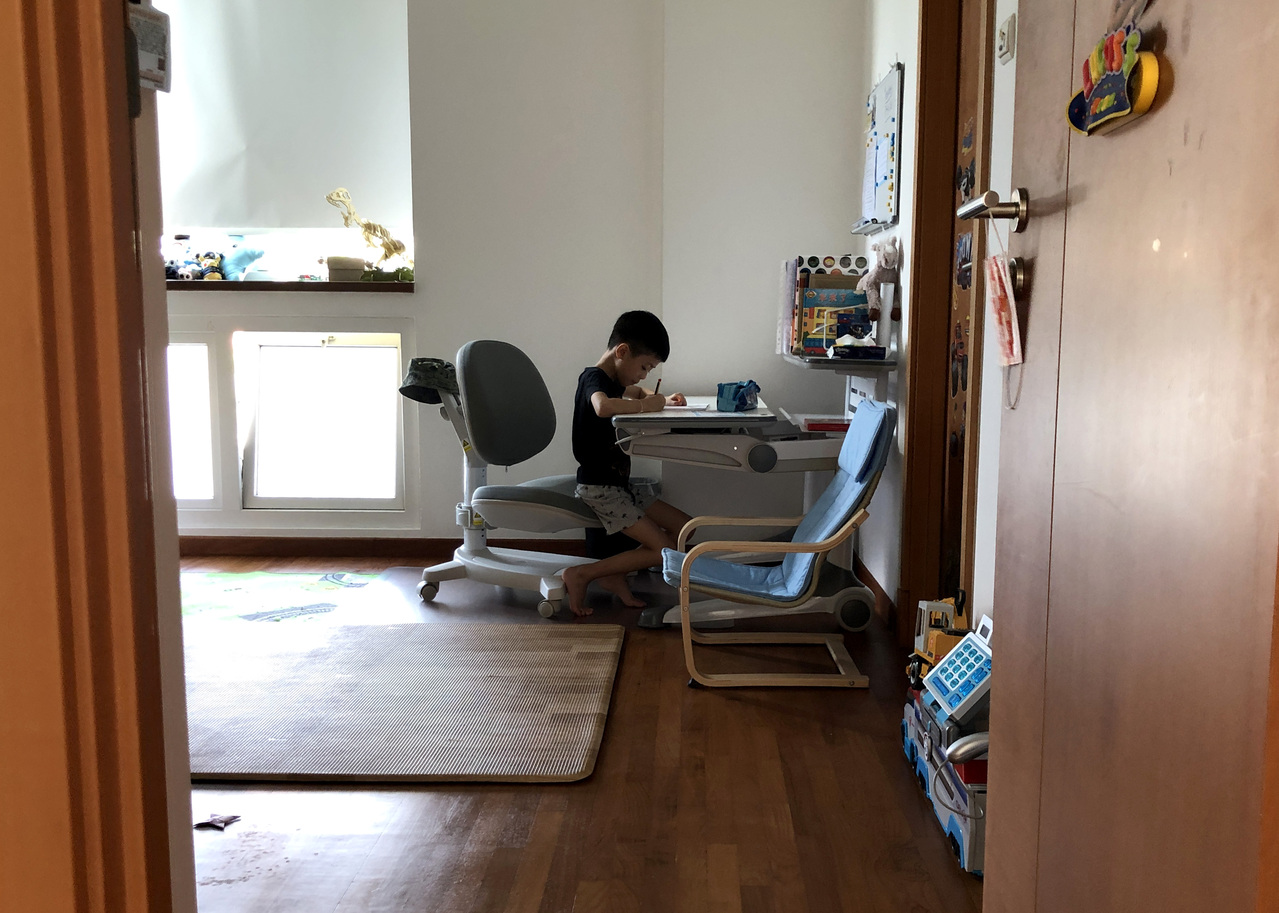Home-based learning set to be regular part of schooling post Covid-19, says Education Minister Ong Ye Kung
Sign up now: Get tips on how to help your child succeed

All secondary school students will get a personal laptop or tablet by the end of next year.
PHOTO: ST FILE
SINGAPORE - Pandemic or not, home-based learning (HBL) is set to become routine, with schools setting aside several days every month for online learning.
Minister for Education Ong Ye Kung, in his video address to school leaders at the Annual Workplan Seminar last Thursday (June 25), said that due to the pandemic, teachers, students and parents went through "an unexpected crash course" in HBL.
But while recognising that HBL cannot be a substitute for school, where there is social interaction, the building of soft skills and values transmission, he said that HBL encourages more independent, self-directed learning, which is one of the most important lifelong skills.
"The sensible thing to do is to complement classroom teaching with HBL, and make HBL a permanent and regular feature of education," he said, suggesting that, perhaps, for a start, HBL could be held once a fortnight.
But HBL days should not be packed with lessons or curriculum teaching. Nor should it be a "free-for-all" where the student does whatever he wishes, he said in the address which was released to the media.
He suggested that it may be useful to get students to go through some curriculum themselves, give them room to read on their own, explore some topics outside the curriculum.
"The main point is to get students to chart their own learning journey, at their own pace."
But, of course, to make online learning a regular feature of education, all students must have access to the right devices and stable Internet connection at home.
That is why the MOE had decided to bring forward the National Digital Literacy Programme, said Mr Ong.
Under the plan announced earlier this year, all secondary school students would get a personal learning device by 2028. Last week, though, Senior Minister Tharman Shanmugaratnam announced that the ministry had decided that all secondary school students will get a personal laptop or tablet by the end of next year.
Mr Ong explained that the change was prompted by "the universal adoption of digital learning" during the circuit breaker period.
"Overnight, all teachers shifted to delivering online lessons... Parents helped to set up spaces at home where their kids could focus on learning. Out of this crisis, and by virtue of necessity, we gained something quite extraordinary - mass acceptance of online learning," Mr Ong said.
The digital device, coupled with digital literacy, is a tool for life.
This is a big step towards digital inclusion, he said, before going on to talk about another gap that the pandemic had revealed and how his ministry will be tackling that.
Mr Ong said the Covid-19 crisis had aggravated the challenges faced by these students from disadvantaged background.
For those who were missing out on the meals provided in school, The Straits Times School Pocket Money Fund tried to help by giving them cash to buy food, but many of the students did not have bank accounts to bank in the money. The MOE conducted a survey and found that about one-third of Primary 1 pupils do not have bank accounts.
This highlighted another imperative: the need to do more to ensure greater financial inclusion, from young.
That is why the MOE, along with other ministries and agencies, was looking into guiding parents to set up a child savings account, when they activate the Child Development Account.
There will be no minimum balance requirement, fees, or charges and the MOE will look into including digital payment. With bank accounts and e-payments, it becomes a lot easier for students to receive monies from awards or financial assistance.
Schools will also teach students about financial literacy, including issues such as how to manage their accounts, budgeting and savings.
Touching on inter-disciplinary learning in tertiary institutions, Mr Ong said the universities and polytechnics are already looking at how to offer more courses that bring together disciplines.
He said there was a need for this, as today's young people are growing up in a different world, where technology is advancing rapidly and industries are ever-changing.
Solving big challenges such as climate change or social inequality requires expertise that spans across disciplinary boundaries.
He said: "The imperatives of tertiary education have, therefore, changed. It has shifted to ensuring our young are versatile, adaptable lifelong learners.
"Professional and specialised training of doctors, lawyers, and architects are still necessary. Some specialisation, including through applied learning, is also needed for students who are single-minded in pursuing their interest.
"But a large proportion of our students enrol in more general courses. They will benefit from a broader set of skills that gives them a strong foundation."
The new initiatives will enable Singapore's education system to "roll with the Covid-19 punches, seizing opportunities even in the most difficult of times", said Mr Ong.
He added: "Education will not be the same post Covid-19. It will be better."


